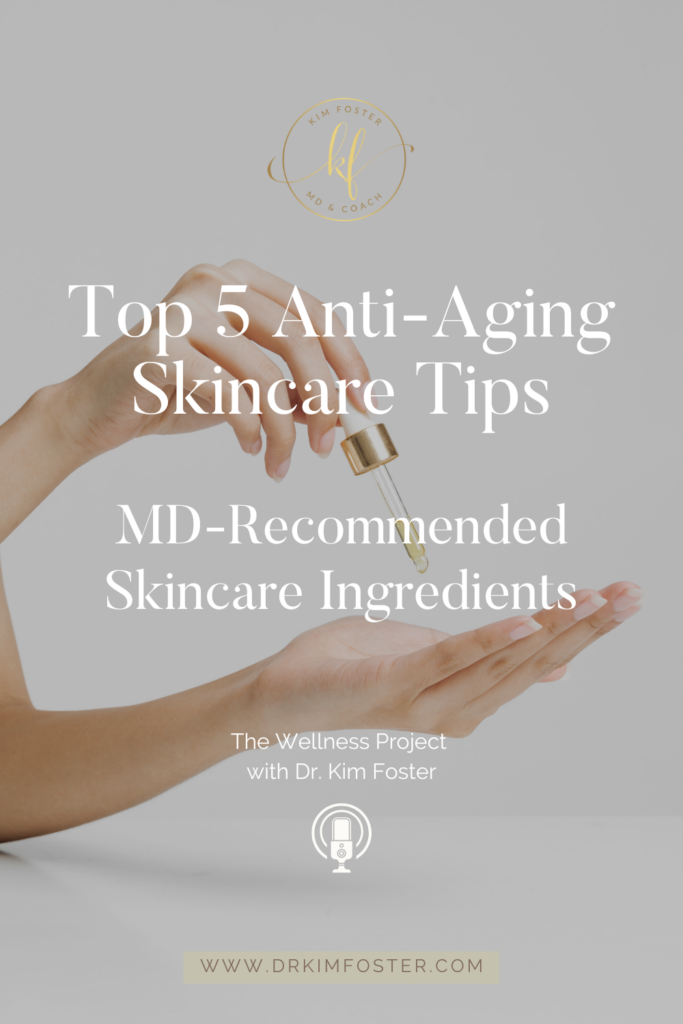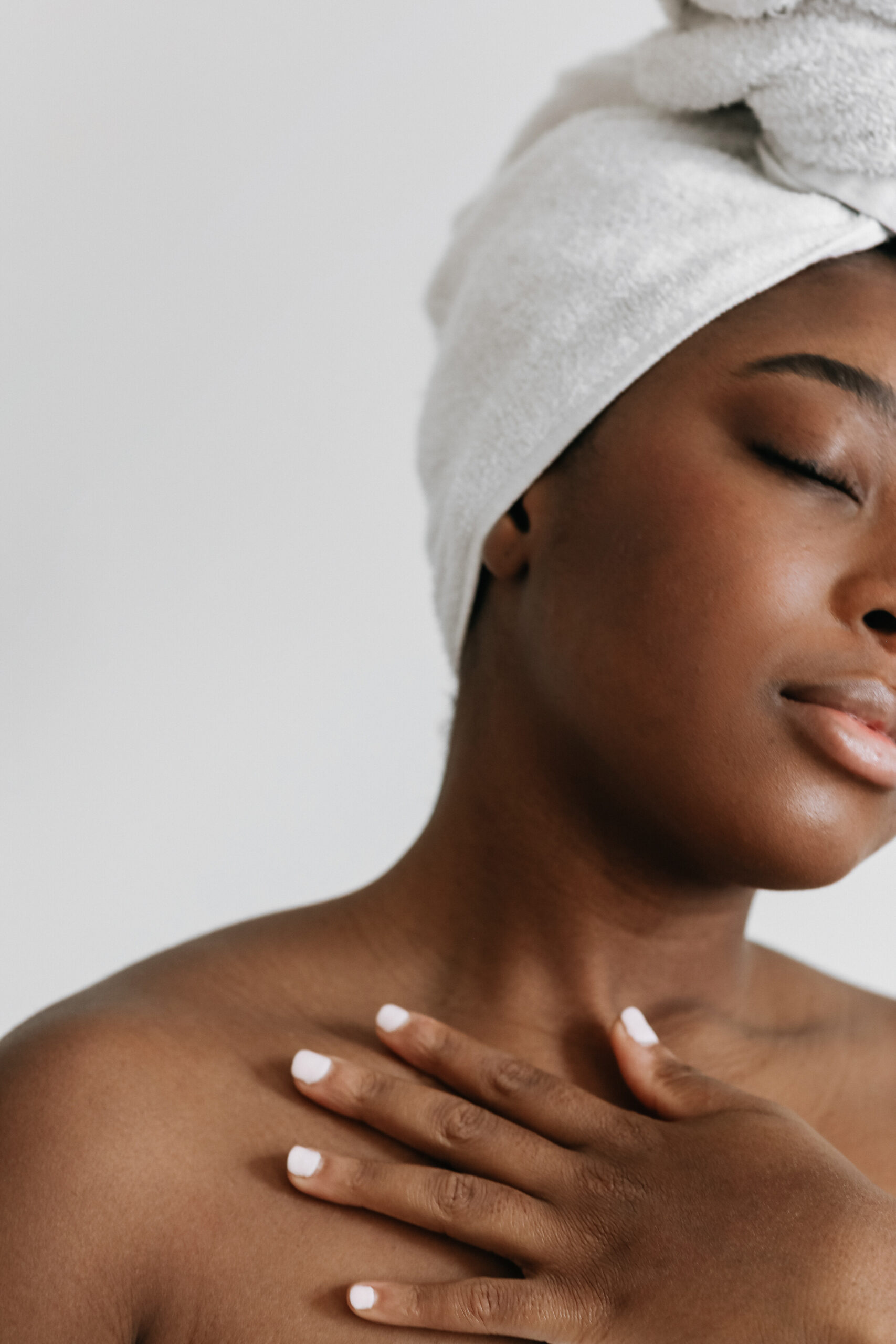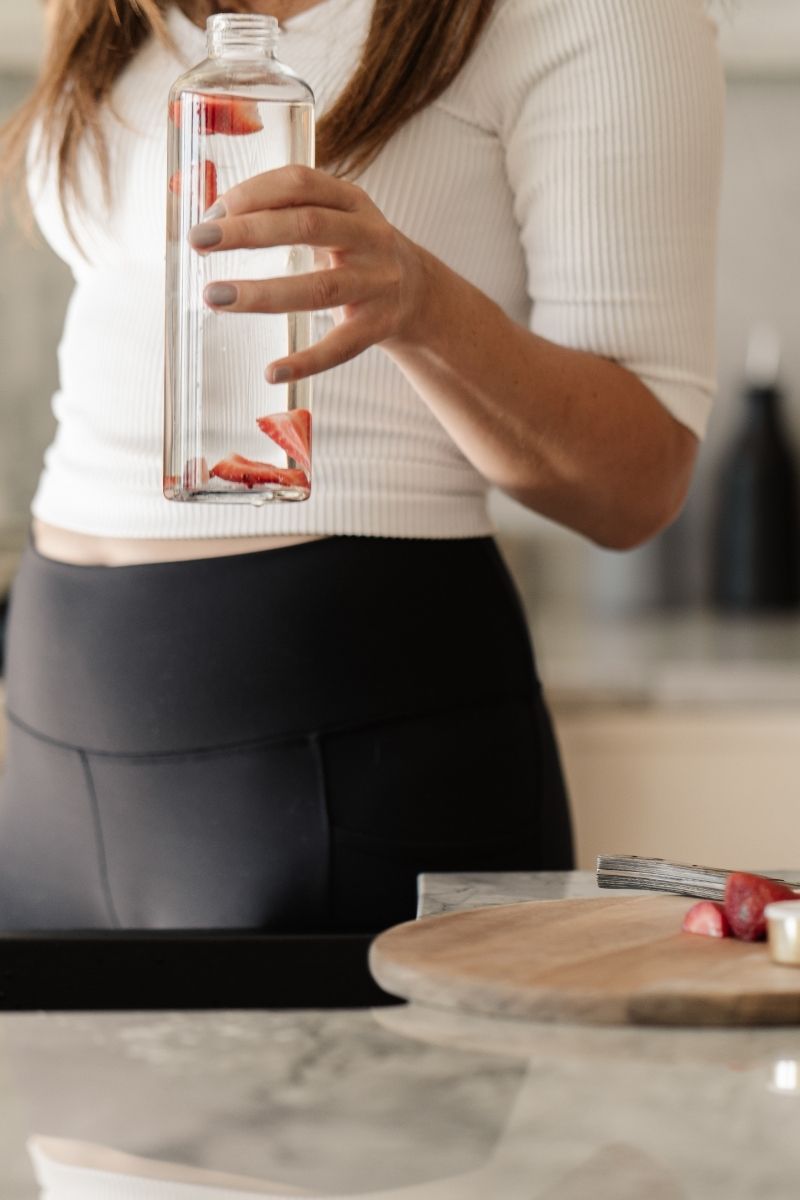The condition of our skin doesn’t just reveal our health but also our age. Wrinkles, fine lines, and age spots are all inevitable changes we notice as the years go by.
And while we should embrace becoming older and wiser, this doesn’t mean we cannot try to minimize the appearance of aging. Doesn’t it make sense to optimize your skincare routine by using products that will keep you looking vibrant and rejuvenated for years to come?
Even so, with such a wide array of skincare products on the market (many of which have anti-aging claims), how do you determine which ones are genuinely beneficial and effective?
Well, it all comes down to the ingredients. Here are the top 3 anti-aging skincare ingredients I look for in EVERY skincare product I buy.
1. Retinoids
If there is one anti-aging skincare ingredient you’ve heard about, it is probably retinoids.
Retinoids are a class of compounds derived from Vitamin A. When applied to the skin, retinoids bind to specific receptors in the skin cells and increase cell turnover. This is important for anti-aging, as retinoids speed up the process of shedding old skin cells and producing new ones – the result: smoother skin with a more even complexion and fewer fine lines and wrinkles.
Another reason retinoids are one of the best ingredients for anti-aging is that they stimulate collagen and elastin production. These two proteins are well known for their role in maintaining the skin’s structure and elasticity.
Unfortunately, as we age, our skin naturally produces less collagen and elastin, which is why we notice those unwanted wrinkles and sagging skin. Thankfully, by using anti-aging skincare products with retinoids, we can increase these proteins’ production and slow the external aging process. Yay!
2. Antioxidants
Antioxidants have become quite a buzzword in recent years due to their impressive array of benefits, from clearing up acne to preventing cancer. But did you know that they can also slow down the aging of your skin?
This group of compounds has an important role in protecting your skin from damage and aging. This is due to their ability to neutralize free radicals and prevent them from causing damage.
Free radicals are unstable molecules generated by various factors, the most common being UV radiation, pollution, and stress.
Free radicals can quickly overwhelm the body and cause oxidative stress, an imbalance of free radicals and antioxidants. Moreover, when free radicals reach the skin cells, they cause damage and age the skin, which explains why high stress and excessive sunbathing (without UV protection) are among the biggest causes of premature aging.
However, by choosing anti-aging skincare with antioxidants, you can maintain balance and prevent oxidative stress, reducing the visible signs of aging, like fine lines, wrinkles, and age spots. And what’s awesome about antioxidants is that they support your skin’s natural repair processes and protect it from further damage.
Antioxidants can be found in several vitamins, including Vitamin C and Vitamin E, as well as plant extracts like green tea, resveratrol, and coenzyme Q10. So, look for these ingredients when choosing your skincare products.
3. Exfoliants
Exfoliation is essential to any skincare regimen, as exfoliants remove dead skin cells and unclog pores to give softer, smoother-looking skin. While exfoliants can help to prevent breakouts and blackheads, they also improve the appearance of fine lines and wrinkles and create a brighter and more even skin tone.
When you think about exfoliation, you probably envision scrubbing your skin with a brush or using a creamy facial scrub with small particles like microbeads. These are known as physical exfoliants, but there is another type – chemical exfoliants.
Chemical exfoliants are skincare products containing acids or enzymes that dissolve dead skin cells or penetrate deep into the pores to remove them. Two common chemical exfoliants used in anti-aging skincare are Alpha-hydroxy acids (AHAs) and beta-hydroxy acids (BHAs).
No scrubbing is required with chemical exfoliants, so these can be a milder and less-irritating alternative to physical exfoliants. But it is possible to over-exfoliate with both types, which can cause more harm than good. In general, exfoliating once or twice a week is enough.
Want to learn more MD-recommended ingredients for anti-aging skincare? Watch the full episode on Youtube to discover the five essential ingredients to include in your skincare regimen for healthier and younger-looking skin.
If you prefer an audio-only version, here’s where you can listen to the podcast episode:
Resources Mentioned & Further Reading:
Download my FREE Healthy Skin Food Guide here: https://drkimfoster.com/healthyskin
The Cleveland Clinic has a great article on The Best Ingredients and Products for Your Anti-Aging Skin Care Routine, and they keep it nice and simple (and evidence-based) — which I love! You can read it right here.

FREE CLASS!
Looking to take your wellness journey to the next level?
The 3 Secrets For Stepping Into A Meaningful New Career Without Wasting Time Or Money
- find out why health & wellness coaching is a skyrocketing industry that can provide the freedom and fulfillment you’ve been craving
- discover the 3 biggest myths about health & wellness coaching that will hold you back (and what the truth is instead)
- learn the secret sauce for getting amazing results for your clients (and building a profitable business as a wellness coach)
…and more!

Subscribe to my Podcast:






